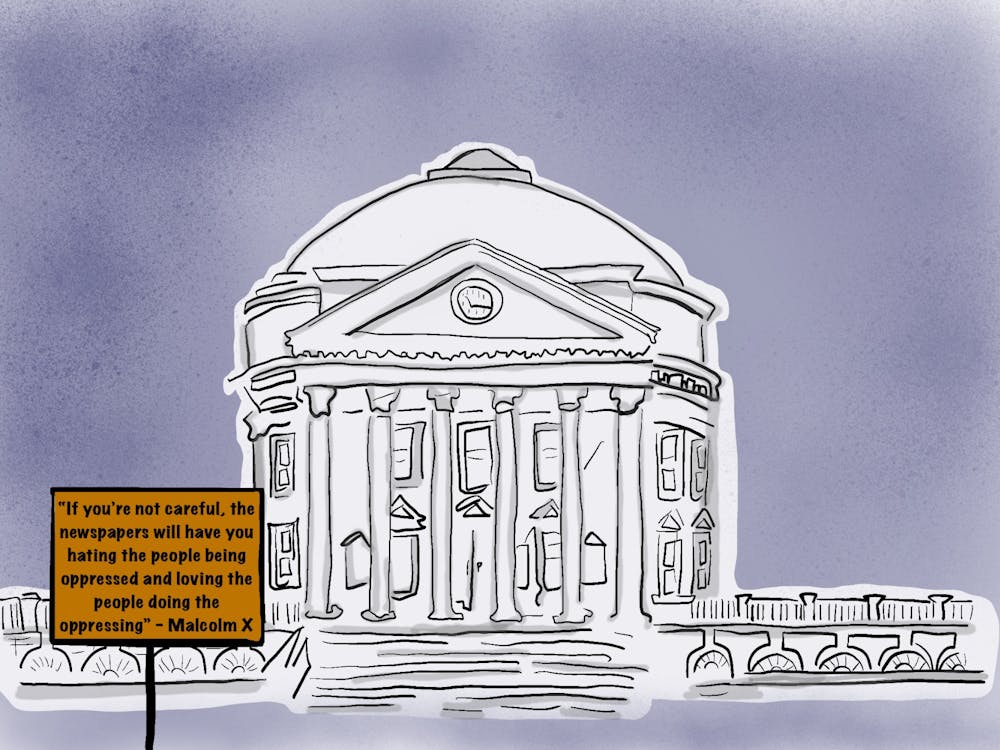On almost every college campus across the nation, the antiquated tenure system is one of the strongest links chaining universities to the past, loading them down with unnecessary costs and preventing them from modernizing at a necessary pace. Almost no other field in the world enjoys the easily abused perks that come with tenure, which include an almost guaranteed lifetime job and freedom of choice in research. As the University’s finances come under increased scrutiny with the introduction of the “Affordable Excellence” program, it is time to take a closer look at the tenure system at the University and across the nation.
Tenure’s roots lie in the 19th century, when powerful university donors would use their monetary influence to remove professors whose views they disagreed with. As a result, tenure was instituted to protect the academic freedom of professors on college campuses. However, despite the claim that it is the champion of academic freedom, in practice tenure can act to narrow discussion to a limited range of noncontroversial research. This is because while the system is designed to protect professors from outside influences, it does nothing to protect prospective candidates from the discriminatory attitudes that the tenured faculty choosing them may possess. Tenured Professor Robert Shupp, a French professor at the University of Houston, lamented the political nature of tenure, noting “Professors will vote tenure for colleagues who are more or less clones of themselves.” A professor’s other biases may come into play as well. In fact, a study at the University of Southern California found a consistent pattern of discrimination against women and minority candidates for tenure positions. This means that a substantial subset of the population is being prevented from entering prestigious positions in their fields by the racist and sexist attitudes of the committees that chose them, a grave injustice that may be playing a role in the lack of diversity within University faculty.
Another reason tenure has failed is the perverse incentives it provides. The tenure system in the United States consists of a probationary period of around five years, during which a prospective candidate’s research, teaching and service are evaluated. At the end of this period, a committee of tenured faculty vote on whether to recommend this person for tenure. If this person succeeds, he is given a job that is almost guaranteed for life. If he fails to receive tenure, he is often terminated. This all or nothing system couples tremendous pressure early in a person’s career with very little incentive following his acquisition of tenure, leading to stagnation in in the education system. It is impossible for young professionals to advance up the academic ladder with the entrenched professors above them stepping on their fingers. Tenure is also an enormous financial burden for an institution. As forced retirement is not allowed, professors can remain long past their expiration date, pushing up costs and stifling innovation while not necessarily being productive. Mark Taylor, chair of Columbia University’s Department of Religion, calculated that the cost of a tenured professor is more than $12 million over the course of their career. Since most tenured professors are paid out of an endowment, millions of normally liquid endowment dollars are put under lock and key. This is money that could be used to advance the quality of the University by being put towards anything from student mental health resources to scholarships for underprivileged students.
This is not to suggest all tenured professors are lazy and do not work to the best of their abilities. In fact, the opposite is most likely true. But the current system allows a small minority of professors to slip through the cracks and establish a habit of incompetence that harms both their students and the reputation of other tenured professors. A professorship should not be given once and kept for life, but evaluated constantly throughout a person’s career. One possible solution would be the institution of renewable contracts. On anywhere from a one-year to a five-year basis, these contracts would ensure that professors have incentives to stay active in their field, and allow the University to keep only those professors who have continued to prove their worth. In fact, the University has already begun to move in this direction. Statistics from the past year show a dramatic increase in hiring of non-tenure track faculty, while the number of tenured faculty remained static. This shift is a natural response to the financial and academic burden of tenure. Overall, tenure is a relic of a past age that needs to be adapted to our new academic environment, or it will continue to decrease the quality and increase the price of our education system.
Alex Mink is a Viewpoint writer.




